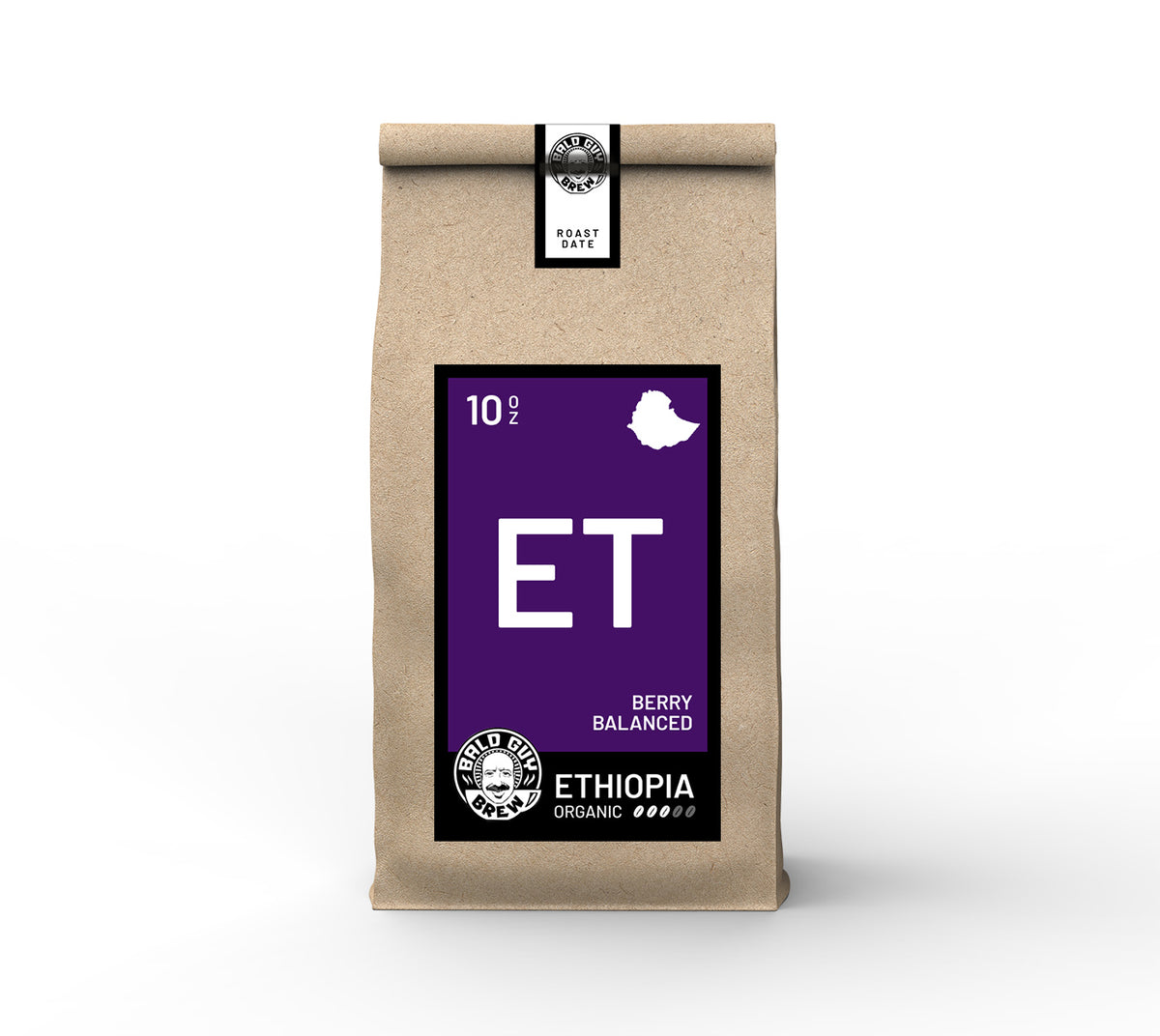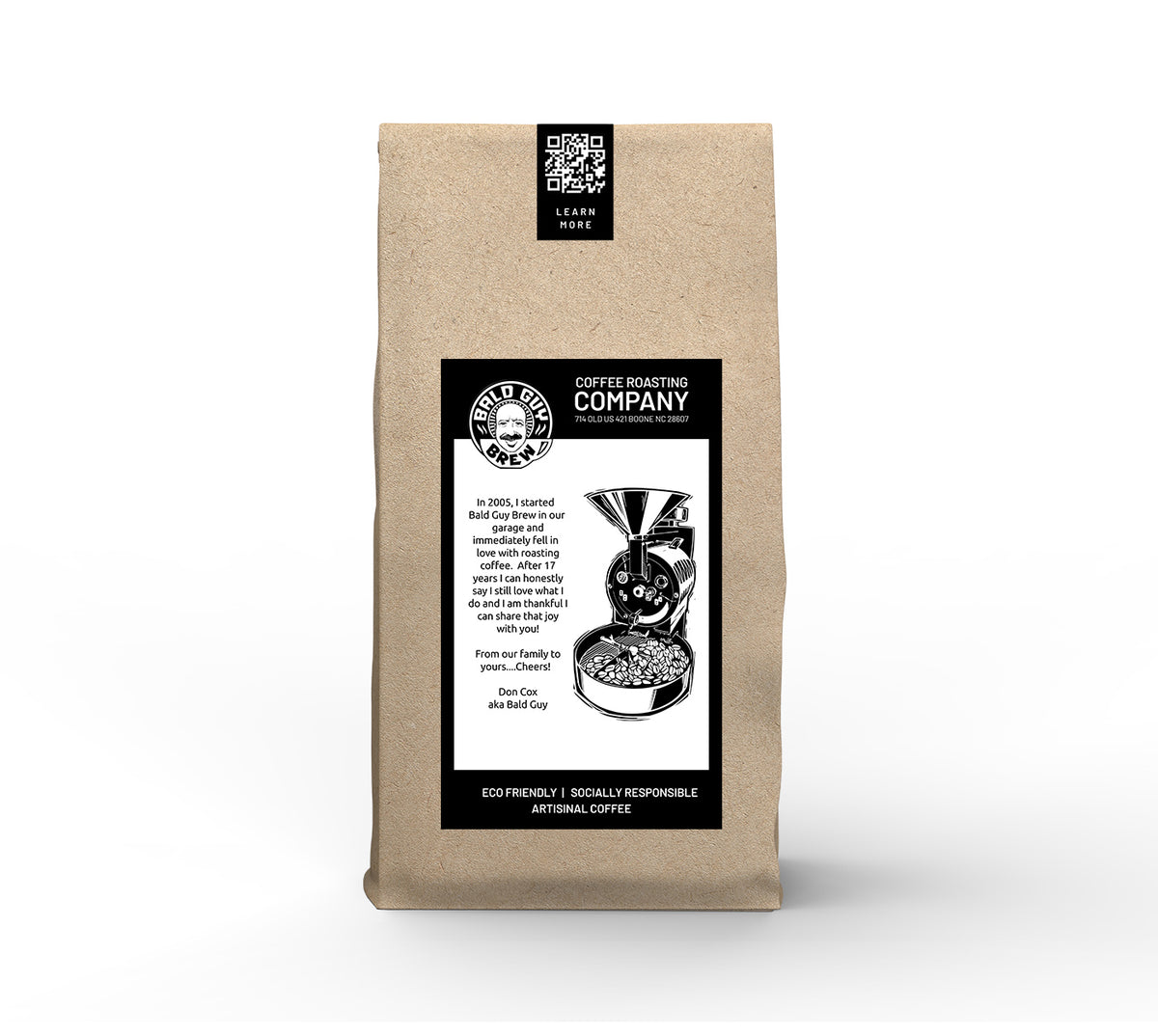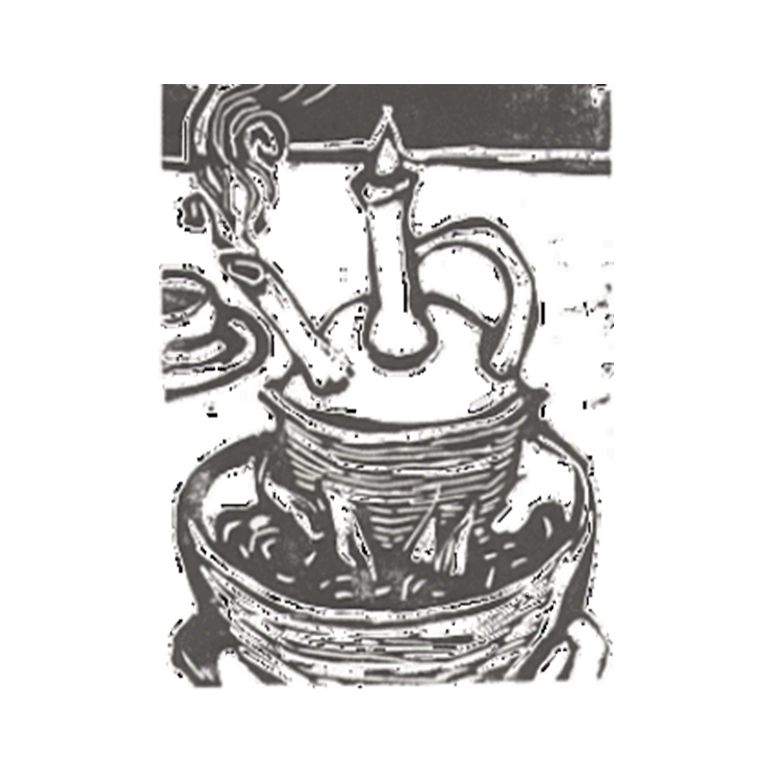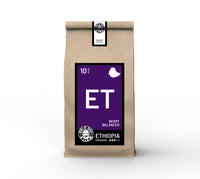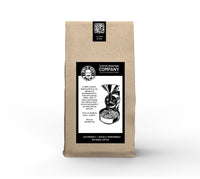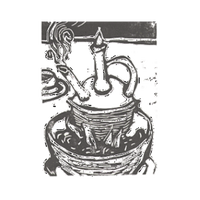Organic Ethiopian Gigesa
Fair Trade & Organic Certified
Product Info
Organic Ethiopian Gigesa Overview
Berry notes are most prominent, flavors of strawberry and raspberry loud, and dried apricot and perfumed floral aromatics impart subtler impressions. Dark Cacao in the finish.
Roast: Medium
Lot: Single Origin
Notes: Fair Trade & Organic Certified
Our Organic Ethiopian Coffee
Our Ethiopian Coffee comes from a family business with three generations of coffee growing and exporting experience. YKM Coffee's passion for exquisite beans goes back some 54 years when our grandfather Alemayehu Yirdawe, began to farm, harvest and sell coffee way before any coffee processing machines were used in Ethiopia’s coffee growing regions. In those days, he used hand operated washing station in Yirgachefe town located in the Southern part of Ethiopia. Subsequently, he became one of the first coffee producers to install a modern washing station in the same town.
Today, our coffee export business has grown to become one of the biggest coffee growers and exporters in Ethiopia with 3 washing and 6 sundried stations in Yirgacheffe, Guji Hambela, Gedeb (Taretu), and Sidam. In addition to these, the family owns a 450 hectors of coffee plantation in the town of Bonga, the birthplace of Arabica Coffee in Keffa the ancient name for the part of the present-day Southern Nations, Nationalities and Peoples’ State region in which Bonga lies. It has suitable Agro-ecological conditions for specialty coffee production and has been recognized as UNESCO Biosphere Reserve since the beginning of June 2010. Its altitude is between 1600 and 1900 meters asl, the soil is red in color, and temperatures are conducive for coffee production. The area is known for distinct higher levels of precipitation and for that reason it is considered as one of the rainiest regions in Ethiopia.
The Origins of Ethiopian Coffee
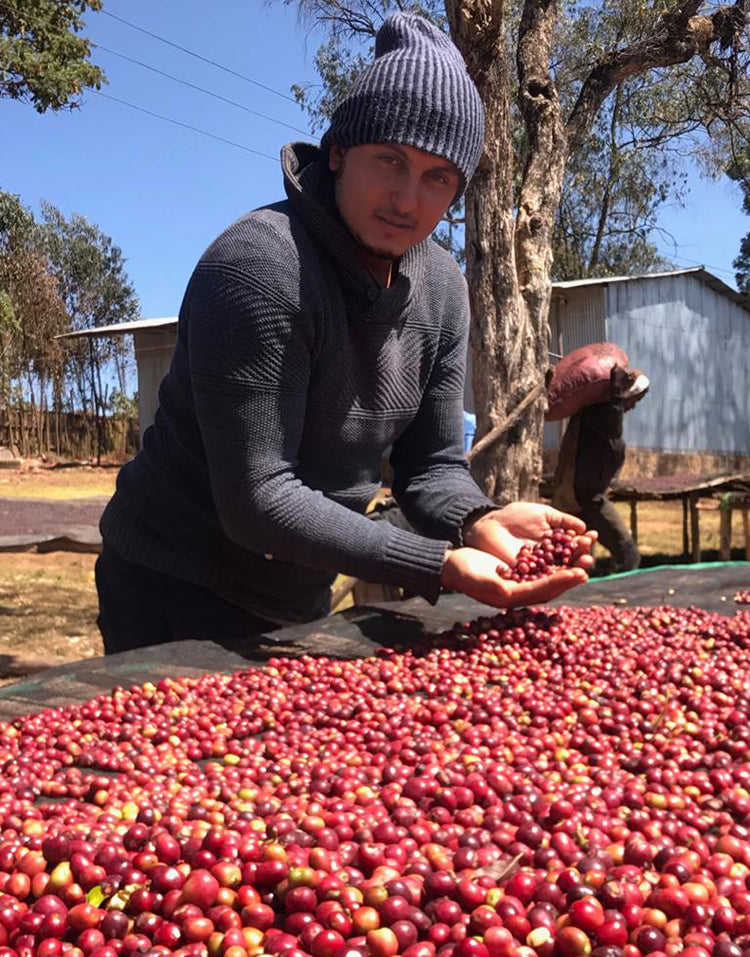
History in the Making
There’s a lot of history behind your first sip of Ethiopian coffee, beginning with a goatherd named Kaldi whose goats were seen leaping after chewing red berries from a nearby tree. The varieties of coffea arabica were first discovered in this mysterious land twelve centuries ago when Kaffa, where coffee was found, was its own kingdom and named aptly for the caffeinated drink made from the berries that grew wild there. Now Kaffa is a province of southwestern Ethiopia where coffee still grows in the rich soil of the Jimma region’s highland rainforests.
There are three large coffee-growing regions in this east African country (Jimma, Yergacheffe, Harar) and about 15 million Ethiopians have livelihoods tied to their country’s chief export.
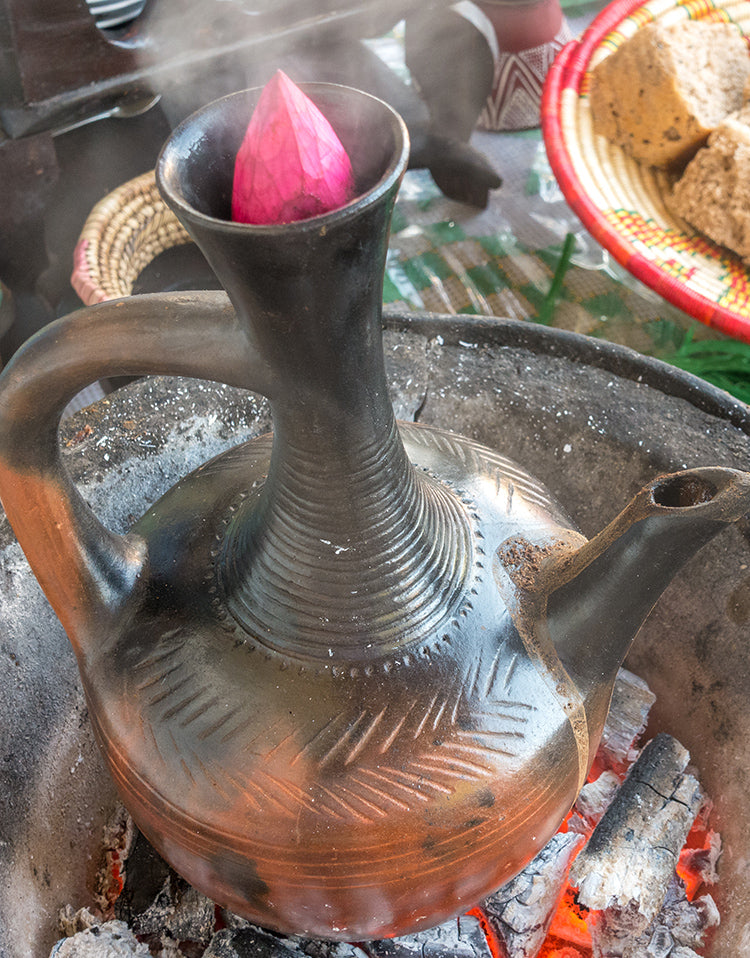
History, Mystery and Ritual
But Ethiopians also savor the specialty coffee they produce. Coffee shapes the country’s rich culture.
Roadside espresso is common in the remotest of rural outposts (one piece of Italy’s legacy during its brief occupation of the area). Many families celebrate the gift of coffee with rituals that involve pan-roasting green coffee beans over an open fire, hand-grinding the roasted beans with a mortar and pestel, and drinking through three rounds of coffee darkly brewed, giving thanks with each delicious cup.
And they should celebrate their yields because Ethiopians have worked hard to be their continent’s greatest producer of coffee and the source of some of the finest coffee in the world.
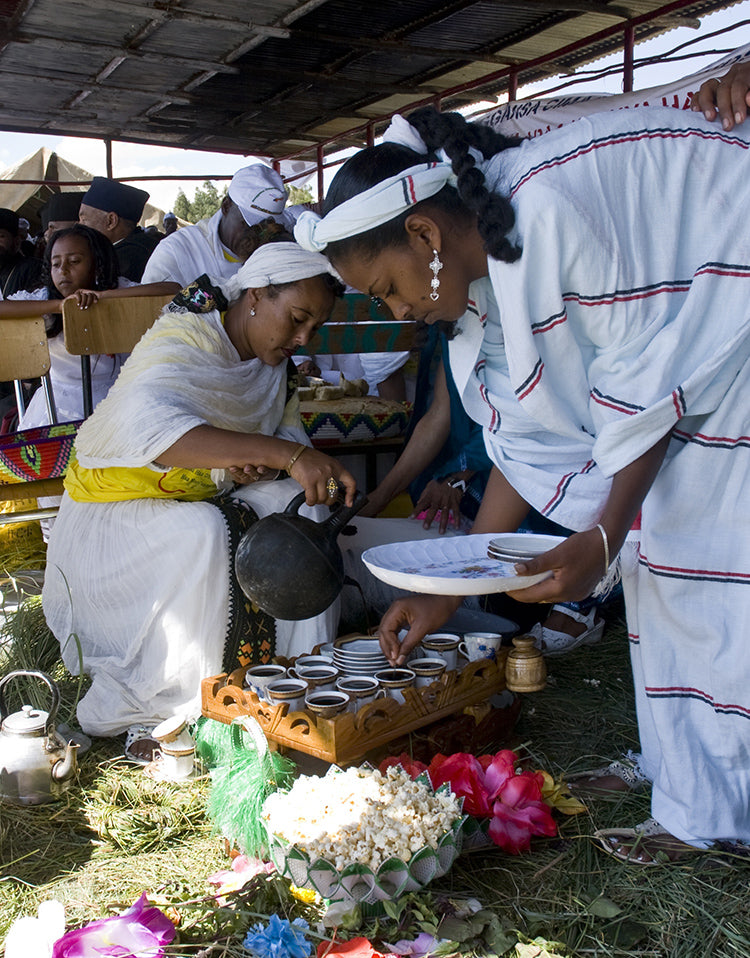
Fair Trade Makes a Difference
Small-share farmers make up the vast majority of Ethiopia’s coffee growers as part of larger co-ops. And this is where the problems begin for these hardworking families whose livelihoods rise and fall with markets in countries thousands of miles away. Many farmers struggle through each season as the dollar value of their yields suffer and co-ops and brokers take their share.
This is why the first sip you take of Ethiopia-origin coffee at Bald Guy brew came deliciously to your lips only after a selection of the highest quality beans purchased at a fair price regardless of market fluctuations. Unlike humans, not all coffee beans were created equal, and because we care about the humans behind our beans, we pay according to the quality of their product.
Country: Ethiopia
Lot: Single Origin
Primary Descriptors: Berry notes, strawberry, raspberry
Roast: Medium


